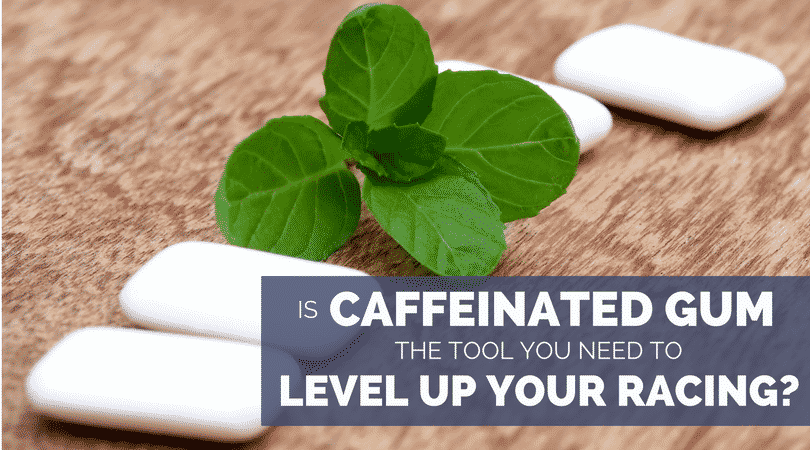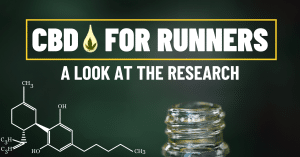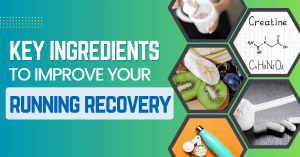Runners are always trying to get an edge for better performance.
With energy drinks, caffeinated gum, and pre-race or pre-workout vitamin supplements all being touted as highly effective performance boosters, it’s hard to tell what works and what doesn’t.
The only way to get an accurate picture is to look at the science behind these supplements and see what’s effective. We had Olympian Nick Symmonds on the podcast last year to talk about his caffeinated gum, Run Gum, and although his product was pretty convincing, we like to do the research for ourselves.
So that is exactly what we will do today. Do any of these actually help improve running performance? Let’s find out:

Does Taurine Help Running Performance?
One ingredient you’re sure to find in almost any energy-boosting product, from Red Bull to Run Gum, is taurine.
It’s used by your body for a bogglingly-long list of biological functions—everything from muscle contraction to antioxidant activity to brain function. Its relevancy to exercise performance is probably related to the fact that it’s found in abundance in skeletal muscle.
Does taurine have synergistic or independent performance-enhancing effects beyond what’s already present in caffeine?
The evidence is weak, but it does tilt in favor of taurine as a performance enhancer.
A 1994 study by researchers in Germany examined the effects of three different formulations of Red Bull on cycling performance.1 One formulation was the standard commercial blend: it had caffeine, taurine, and glucuronolacton, another suspected performance-booster.
A second formulation had caffeine only, and the third had none of the three active ingredients. The researchers found that the original blend resulted in significantly longer endurance in a 12 to 15 minute ride to exhaustion after a 60 minute steady ride, to the tune of almost three minutes.
While these results favor the use of taurine in conjunction with caffeine, it should be noted that the sample size was quite small, and the study appears to have been financially supported in part by Red Bull.
More recent work by Jane Rutherford, Lawrence Spriet, and Trent Stellingwerff found that taurine supplementation in another small group of cyclists did not affect time trial performance, but did increase fat oxidation, which can have an energy-sparing effect.2
Caffeine is also known to increase fat oxidation, which can have a performance-boosting effect in long events like a marathon or an ultra.
Aside from this, there has been relatively little research done on taurine and endurance exercise performance.
While more research is needed, taurine appears to help augment the performance boosting and fat-oxidizing effects of caffeine.
Do B vitamins Help Running Performance?
Like taurine, it’s nigh-impossible to find an energy drink or pre-workout drink, snack, or gum that doesn’t include B vitamins.
What’s so special about these nutrients?
The B-complex vitamins (B3, B6, B9, and B12 being the most common in supplements) have diverse biological roles, and as such, have become something of a trend in supplementation circles. Supplements that claim to help with everything from losing weight to improving memory include mega-doses of B vitamins, often with only vague reasoning behind why they choose to do so.
A review article published by Henry C. Lukaski in the scientific journal Nutrition suggests that certain types of athletes, such as those trying to lose weight and strict vegetarians, might be at risk for vitamin B12 depletion, which can have negative impacts on performance.3
However, Lukaski also notes that vitamin B12 does not have any performance-boosting effects in healthy athletes, citing research on adolescent boys that found no improvements in half-mile run performance after seven weeks of B12 supplementation.
Similar patterns have been noted in other studies on B complex vitamins and endurance performance.
However, as noted in a 2007 review article by Erik van der Beek.4, B vitamins are not going to be the magic bullet you might have hoped they were.
A deficiency in your dietary intake can cause problems, but if you have a healthy diet including a lot of these 27 recovery foods for runners, you’re not likely to see a benefit from B vitamins.
Can Caffeinated Gum Help Running Performance?
It’s no secret that caffeine is a performance enhancer.
As demonstrated in a 2008 scientific study published by Matthew O’Rourke and other researchers in the Journal of Science and Medicine in Sport, a moderate dose of caffeine can improve 5k performance by about one percent—though this may sound small, it still amounts to twelve seconds’ worth over a 20 minute 5k.5
Other research in cyclists has found performance improvements on the order of 3-4% over the course of a 60min time trial.6
But what about caffeine in a chewable form?
Are there any specific advantages to caffeinate gum versus a pill or drink?
Research on this front comes from the military, which has an obvious interest in developing reliable, fast-acting performance boosters.
A 2002 study by Gary Kamimori and other researchers at the Walter Reed Army Institute of Research and the University of Maryland looked into the absorption and availability of caffeine in gum versus standard caffeine pills, with the purpose of evaluating whether “energy gum” could help soldiers perform better in the field.7
In the study, three doses of caffeine (50, 100, and 200 mg) were administered to male test subjects in either gum or pill form.
The researchers tracked the subjects’ blood concentrations of caffeine over the course of several hours, then evaluated how quickly blood caffeine levels rose after ingestion and how much total caffeine was absorbed from the dose.
The researchers found that caffeinated gum results in significantly faster caffeine absorption.
Blood caffeine levels reached peak concentrations after about 45 to 80 minutes following gum usage, versus 85 to 120 minutes following pill usage.
Pills performed slightly better in terms of how much caffeine was absorbed by the body, but the difference was so small that it’s unlikely to make a difference in the real world.
Caffeinated gum, like Run Gum and its competitors, are just as effective at boosting performance as other forms of caffeine, but you need to adjust your timing.
Typically, exercise physiologists recommend taking caffeine 60 to 90 minutes before your race or workout, but with Run Gum, it appears that you should take it more like 45 to 60 minutes prior.
For a longer race, like a marathon, you may need a pick-me-up partway through like elite runner Tina Muir recommends. Recall that the same time-delayed absorption will affect caffeine consumed during exercise too.
What are the most effective performance-boosters?
In summary, caffeine is your best bet for improving your performance in a tough workout or an important race.
Caffeinated gums, like Run Gum, can be advantageous because the caffeine is absorbed more rapidly through your mouth, allowing more flexibility when it comes to timing your dosage.
Caffeine’s endurance-boosting benefits may be augmented by taurine, though the evidence is relatively weak.
On the other hand, B vitamins don’t appear to have any performance-boosting effects in healthy athletes.
RunnersConnect Bonus
Download your FREE Guide where we share the Best Foods to Eat Before Running.
The guide contains 5 of the most nutritious foods to eat before a run lasting 60 minutes or less and 10 foods that will fuel you through your runs over 60 minutes. Each of these carefully selected pre run foods will help you feel better in your training (while making sure they do not upset your stomach!)….we all know how bad that feels!








